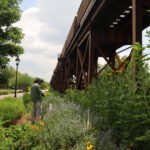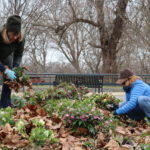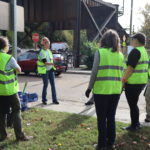
Author: Lisa Trapp
Research is starting to suggest that urban landscapes that prioritize native species and utilize diverse plant palettes, may be hotspots for supporting our native pollinators (1). These densely planted areas can provide opportunities for pollinators to find food, habitat, and overwintering resources all within a relatively compact space. By contrast, suburban and rural environments may not support pollinators as well as once believed. Even though these areas have more lawn and green space,
... Read more »



